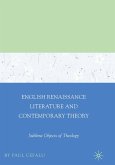Dieser Download kann aus rechtlichen Gründen nur mit Rechnungsadresse in A, B, BG, CY, CZ, D, DK, EW, E, FIN, F, GR, HR, H, IRL, I, LT, L, LR, M, NL, PL, P, R, S, SLO, SK ausgeliefert werden.
"Schmid's impressive monograph offers the first truly definitive account of Shelley's reception in Germany over the last two centuries. Drawing upon extensive research in English and German archival sources, Schmid persuasively argues that Shelley, the immaterial angel, left traces and imprints upon German literature and culture which endure to the present day. Both in its innovative methodology and in its concrete discoveries, this study breaks new ground and offers valuable insights to all readers of Romantic poetry." - James C. McKusick, Professor of English, The University of Montana"Shelley s German Afterlives constitutes a major, erudite scholarly recovery that is breath-taking in its scope. Schmid seamlessly melds together the bibliographical record; biographical adaptations; Shelley s reception among literary coteries, academic circles, and political radicals; translations of his writings both in Germany and Austria; and, again and again, his adoption as a mythic, transfigured poetic avatar whose multiple facets came to be revived generation after generation across the German-speaking world. In the end, this is a model history of how one national literary movement is absorbed into another, holding as great an import for German literary history as for a more localized concern with the abiding legacies of British Romanticism." - Stuart Curran, Vartan Georgian Professor of English, University of Pennsylvania









